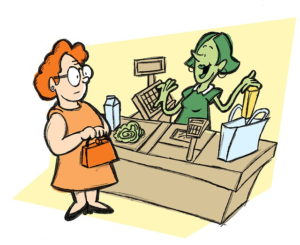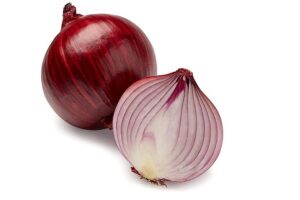“Kindness is Never Wasted” — Anonymous
At this time of year, most people’s focus is on Valentine’s Day, and while romantic love is a valid point of interest, there’s another point I think makes a lot more sense for us to celebrate.

February 17th is “Random Acts of Kindness Day”, and to my mind, is a much more relevant and valuable quality of being, as well as a better focus for our behaviour. In fact, why limit it to one day a year? Why not build a habit of doing one kind thing for others every day?
Think about it…when we engage in an act of kindness, either as giver or receiver, we experience a whole host of pleasurable sensations. We feel gratitude; for the kindness done to us, as well as for the opportunity to do it for others.
On a purely physiological level, practicing gratitude and kindness lowers chronic inflammation, reduces stress levels, and our entire system is flooded with pleasurable hormones:
- Oxytocin is the “love” hormone released upon physical contact. Intercourse and childbirth release large amounts of oxytocin, but even a good old hug works. Oxytocin provides feelings of love and trust, which is why relationships boost our happiness. (Incidentally, petting a dog or cat boosts this hormone as well, both for the human and for the pet, so be kind to your animals.)
- Serotonin boosts our mood and makes us more agreeable and sociable. Lack of it can cause irritability and depression.
- Dopamine is a “pleasure” hormone and is stimulated when we strive towards a goal. It motivates us to take action to achieve a goal so we can experience the pleasure of the reward.
- Endorphins block pain. They are the body’s natural painkillers.

These hormones are released when we do kind things for others or kind things are done for us, and we feel good about these acts of kindness.
This goes for being kind to ourselves as well. When we beat ourselves up for mistakes we’ve made or call ourselves names we’d never think about saying to our friends in similar circumstances, we reduce our ability to stay healthy and, yes, sane. Gratitude and kindness help people to be happier.
Even witnessing acts of kindness makes us feel good. We read books or watch movies in which others are good to one another, and we get all weepy, or we laugh out loud, we say, “aww”, or we simply smile. Happily Ever After is a mainstay in nearly every storytelling genre, even horror.
Emotional Layering
But gratitude, while an oft-touted benefit of acts of kindness, is not an emotion felt in isolation. Like any other, the emotion of gratitude is layered with several others which give it its own unique “flavour” in any given situation.

One afternoon, years ago, I was grocery shopping with my mother. The woman ahead of us had more groceries than she could pay for. The difference between how much she needed and what she could afford was small, but she needed the food for her kids and was trying to decide which items to remove from her cart. Behind me, a man was grumbling about how long she was taking.
So I thought, why not? and told the cashier I’d pay the difference. I didn’t know the woman, and I’ve never seen her since, but that feeling of helpfulness has stayed with me for over twenty years. I felt grateful that I was in a position to help, but also magnanimous. It made me feel like the kind of person I want to be all the time. For those few moments, I lived up to my own view of myself as the hero of my own story.
But, there’s an odd dichotomy here as well. I also feel a weird sort of shame that I was in a better financial position than she was and that I could gain so much “feel-good” from helping out. That isn’t why I did it, but it feels almost dishonest to accrue that sense of, “I’m such a good person”. It feels as if I did it for all the wrong reasons.
More recently, I’ve found myself in a position where I’ve needed help, and when people unexpectedly offer kindness, the feelings are overwhelming. It’s that combination of emotions that have us weeping with gratitude when someone risks everything to help: relief at the unexpected release or cessation of pain and stress, as well as love for the person who helped. In addition, we may feel embarrassment at having got ourselves into this mess in the first place, resentment and shame that they witnessed our weakness and vulnerability, that we were so feeble as to let them see us as less than we’d like them to believe. We may feel obligated to reciprocate in kind.
 This is what I mean by emotional layering. If we dig deep, we can find all kinds of emotional layers, especially when the primary emotion is powerful. We all have a sense of self that is constantly challenged by circumstances, so when we help others, or we need help ourselves, it simply means we’re human — we’re social animals who need others to survive, no matter what our self-identity might think.
This is what I mean by emotional layering. If we dig deep, we can find all kinds of emotional layers, especially when the primary emotion is powerful. We all have a sense of self that is constantly challenged by circumstances, so when we help others, or we need help ourselves, it simply means we’re human — we’re social animals who need others to survive, no matter what our self-identity might think.
Questions:
Think of a time when you were the recipient of an unexpected act of kindness.
- How did it make you feel?
- In addition to gratitude for the act of kindness, what mix of other emotions did you feel?
- Guilt, embarrassment, shame, regret, gratitude, elation, relief, obligation, reciprocity?
- How did you react?
Now think of a time when you were kind to others.
- What mix of emotions did you feel?
- What physical sensations did you feel?
Have you witnessed an act of kindness lately?
- In person, in a movie, book or television show?
- How did that make you feel?
- What was your physical reaction?
- Smiling, laughing, relaxation of tension?
- What else?
Exercises
- Write a short story about a RAoK.
- Write a letter – Take 5 minutes to write a letter or card and mail it to someone who isn’t expecting it. Don’t text. Don’t email. Put a stamp on it and mail it.
- On Random Act of Kindness Day, or any other day, pick up the phone and call someone who’s not expecting it. Take time to find out how they’re doing. Make the call about them. Care.
- At the end of each day for the next week, make a note of every act of kindness you give, receive or witness. Go through the questions above. How can you use these emotions in your stories?
Now write one of these scenarios in your memoir. Show the reader who you REALLY are, deep down.
Happy Writing!

Beverley Hanna
Trained as an artist in the late 1960’s and early 1970’s, I was one of the first creatives to be employed in the computer graphics industry in Toronto during the early 1980’s. For several years, I exhibited my animal portraiture in Canada and the U.S. but when my parents needed care, I began writing as a way to stay close to them. I’ve been writing ever since. I run a highly successful local writer’s circle, teaching the craft and techniques of good writing. Many of my students have gone on to publish works of their own. I create courses aimed at seniors who wish to write memoirs, with a focus on the psychology of creatives and the alleviation of procrastination and writer's block.
